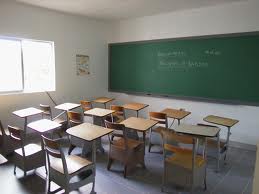Report finds teachers woefully unprepared for classroom challenges

By Evan Grossman | Watchdog.org
Teachers are not ready to teach.
That was the bold message delivered by the National Council on Teacher Quality this week in a scathing national report on educators.
Pennsylvania got particularly poor marks on retaining effective teachers and getting rid of ineffective ones.
READY FOR THIS? A scathing report says many states don’t adequately prepare teachers for the classroom.
Atop a long list of findings, NCTQ reports that most states haven’t done enough to prepare new teachers for the higher standards their students are expected to achieve.
“With such a profound change occurring in K-12 student standards across the country, it would stand to reason that parallel changes would occur on the teacher side,” said Sandi Jabos, NCTQ’s vice president and managing director for state policy. “States need to ensure that new teachers are adequately supported in the transition to higher standards and beyond. And there is no better place to start than where new teachers begin to learn their craft — in teacher preparation programs.”
The eighth annual State Teacher Policy Yearbook examines the effectiveness of educators in all 50 states and concluded American school districts are mostly falling short in delivering well-prepared teachers, expanding the teaching pool and identifying and getting rid of ineffective teachers while retaining effective teachers.
Overall, Pennsylvania received a C-minus. For the past five years, the state’s grades have shown modest improvement, going from a D in 2009 to a D-plus in 2011 to a C-minus in 2013.
Pennsylvania scored poorly in getting rid of bad teachers. That’s because the state awards automatic tenure after three years on the job, has a lengthy appeal process for dismissed teachers and maintains a system that rewards seniority over performance, according to the report.
Pennsylvania was praised as one of only eight states with policies that detail the ways literacy skills must be incorporated across all subject areas and it scored relatively high in identifying effective teachers.
The state has taken some small steps forward on policies aimed at improving teacher quality.
In 2012, Gov. Tom Corbett signed into law a new teacher performance rating system based on a combination of school-wide test scores, teacher-specific test scores and other student performance criteria to be determined by each individual school district. It was intended to give schools better information about which teachers should be kept and which should not.
An effort to change the state’s tenure laws for public school teachers failed to reach the governor’s desk during the budget session in June.
Most states received their highest marks in the eight-year history of the study “because of significant reform, particularly in the areas of teacher evaluation and related teacher effectiveness policies,” according to the NCTQ.
Florida, Indiana and Rhode Island each earned a B-plus, the highest grade in the country, for raising admission standards for teacher preparation institutions, requiring teachers to demonstrate knowledge of the content they will be licensed to teach and collecting the kinds of data that will help hold teacher preparation programs accountable for giving new teachers the tools they need to succeed.
Montana got an F, the only failing grade in the country.
Click here to view the full report.







